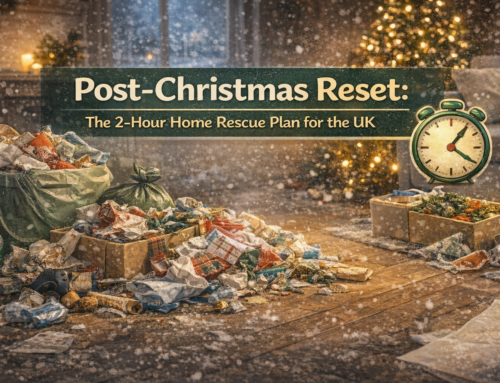As the 2025 Waste Regulations approach, UK businesses must follow new waste rules. This is to avoid fines and penalties.

Good office clearance is key for a tidy and green workspace. The new rules will make business waste rules stricter. It’s vital for companies to know what they must do.
This guide explains the changes and gives tips on following the 2025 Waste Regulations.
Key Takeaways
- Understand the new waste disposal guidelines under the 2025 Waste Regulations.
- Learn the importance of effective office clearance for your business.
- Discover how to comply with business waste clearance regulations.
- Find out how to maintain an environmentally responsible workspace.
- Explore practical tips for implementing the new waste regulations in your organisation.
The 2025 Waste Regulations: What Businesses Need to Know
The 2025 Waste Regulations are coming to the UK, changing how businesses handle waste. These changes aim to better manage waste, cut down on environmental damage, and encourage eco-friendly practices.
Key Changes in Commercial Waste Legislation
The 2025 Waste Regulations bring big changes to waste laws for businesses. They now need to sort their waste into more categories. Also, they must use only certified waste disposal services to protect the environment.
| Category | Current Requirements | 2025 Regulations |
| — | — | — |
| Waste Segregation | Limited segregation requirements | Stricter segregation protocols |
| Waste Disposal Providers | No certification required | Certified providers mandatory |
| Record-Keeping | Minimal record-keeping requirements | Detailed record-keeping mandatory |
Timeline for Implementation
The new waste rules will roll out in stages, starting in January 2025. Businesses have six months to get ready. Full enforcement will kick in by July 2025.
Recent Announcements and Updates
The UK government has made new rules clearer. Businesses should keep up with updates and talk to waste experts to meet the new standards.
Knowing the changes, timeline, and updates helps businesses get ready for the 2025 Waste Regulations. This way, they can avoid fines and stay on the right side of the law.
Commercial Waste Disposal Requirements Under the New Framework
Commercial waste disposal is changing a lot with the 2025 Waste Regulations. These rules aim to make waste management better in the UK. They want to make waste disposal more sustainable and good for the environment.
Waste Classification Changes
The new rules change how we sort waste. Businesses must now separate recyclables from non-recyclables. They also need to identify hazardous waste.
This means businesses will focus more on recycling. They will try to send less waste to landfills.
Documentation and Record-Keeping
Keeping good records is key under the new rules. Businesses must keep track of their waste disposal. This includes what types and how much waste they produce.
This info helps check if businesses are following the rules. It also shows where they can improve waste management.
Enforcement and Inspections
The new rules will be enforced with inspections and fines. If businesses don’t follow the rules, they might get fined.
Inspections will happen regularly. They will check if businesses are meeting the new waste disposal standards.
Office Clearance Compliance: Essential Steps for UK Businesses
UK businesses must focus on office clearance as the 2025 Waste Regulations get closer. To meet these rules, several steps are crucial. These steps ensure businesses follow the regulations.
First, businesses need to understand the role of pre-clearance assessments. These assessments identify waste management issues early.
Pre-Clearance Assessment Requirements
A pre-clearance assessment is vital for office clearance. It examines the types and amounts of waste to be removed.
- Identify the types of waste to be disposed of, including hazardous and non-hazardous materials.
- Assess the volume of waste to determine the necessary disposal methods.
- Consider any special requirements for handling specific types of waste.
This step helps businesses plan for waste disposal that meets the rules. It prepares them for the clearance process.
Waste Segregation Protocols
Effective waste segregation is key for compliant office clearance. Businesses must sort waste into different categories.
- Segregate hazardous waste, such as batteries and electronics, from non-hazardous waste.
- Separate recyclable materials, like paper and cardboard, from general waste.
- Ensure that waste is properly contained to prevent contamination.
Good segregation makes disposal and recycling more efficient. It also reduces the environmental impact of office clearance.
Duty of Care Obligations
Businesses must ensure their waste is disposed of responsibly. This means understanding their waste transfer and documentation duties.
Transfer of Waste Responsibilities
When giving waste to a disposal company, businesses must check if the company is licensed and follows the rules.
- Verify the disposal company’s credentials and certifications.
- Ensure that the company provides appropriate documentation for waste transfer.
Chain of Custody Documentation
Keeping accurate records is vital to show compliance. This includes waste transfer records, disposal certificates, and other important documents.
| Document Type | Purpose | Responsibility | |||
| Waste Transfer Note | Records the transfer of waste to a disposal company. | Business and disposal company. | Disposal Certificate | Confirms that waste has been disposed of according to regulations. | Disposal company. |
By following these steps, UK businesses can meet office clearance compliance. This helps create a more sustainable waste management environment.
Preparing Your Business for Compliant Office Clearance
With the 2025 Waste Regulations on the horizon, UK businesses must get ready for compliant office clearance. This is to avoid fines. Several important steps are needed to make sure your business meets the new rules.

Conducting a Waste Audit
A waste audit is a key first step. It involves checking the types and amounts of waste your business produces. This helps spot where you can do better and ensures your waste handling meets the new rules.
- Identify the types of waste generated by your business.
- Quantify the waste to understand disposal needs.
- Assess current disposal practices for compliance.
Developing a Compliance Strategy
After the waste audit, you need to create a compliance strategy. This plan outlines how your business will follow the 2025 Waste Regulations.
A good strategy should include:
- Implementing waste segregation protocols.
- Ensuring proper documentation and record-keeping.
- Training staff on new waste management practices.
Staff Training Requirements
Training your staff is crucial for following office clearance rules. They need to know how to dispose of waste properly and their role in it.
Good training should cover:
- The principles of the 2025 Waste Regulations.
- Practical guidance on waste segregation and disposal.
- The importance of accurate record-keeping.
Professional Office Clearance Services: Finding Compliant Providers
The 2025 Waste Regulations have made it essential for businesses to find reliable office clearance services. These new rules require companies to work with providers who follow strict waste disposal standards.
Vetting Clearance Companies
Businesses need to check if office clearance companies are up to standard. Look for ISO 14001 certification, which shows they care about the environment. Also, make sure their waste disposal methods meet the new rules.
Ask for references and read reviews from past clients. A good provider will be open about how they handle waste and provide all the necessary documents.
Cost Implications of Regulatory Compliance
Office clearance costs might go up due to the new rules. Companies should be ready for higher prices as providers adopt new waste methods. But, recycling and reducing waste can help save money in the long run.
Get quotes from different providers and compare them. Look at both the price and the services offered. This way, you can find a service that’s both affordable and meets the regulations.
Contractual Considerations and Liability
When choosing a clearance company, check the contract carefully. Make sure they take responsibility for any environmental issues or rule breaches.
Clear contracts protect your business from legal and financial problems. It’s wise to include regular checks to make sure they keep following the rules.
Office Furniture Removal and Equipment Disposal
The 2025 Waste Regulations highlight the need for responsible office furniture and equipment disposal. As UK businesses prepare for office clearance, understanding these regulations is key.

Furniture Reuse and Donation Schemes
Reducing waste is possible through furniture reuse and donation schemes. Many organisations now refurbish or repurpose office furniture. This approach saves resources and can cut costs.
Charities and social enterprises collect office furniture for reuse or recycling. Donating or reusing furniture helps businesses with their CSR efforts.
| Scheme | Description | Benefits |
| Furniture Refurbishment | Services that refurbish office furniture for reuse. | Reduces waste, cost-effective. |
| Charity Donations | Donating furniture to charities for redistribution. | Supports local communities, CSR benefits. |
| Recycling Programs | Programs that recycle materials from office furniture. | Environmentally friendly, reduces landfill. |
Electronic Equipment Disposal Regulations
The disposal of electronic equipment is strictly regulated due to hazardous materials. The 2025 Waste Regulations stress the need for proper e-waste disposal. Businesses must follow these regulations during office clearance.
Businesses must use approved waste carriers for electronic equipment disposal. This ensures e-waste is recycled responsibly.
Hazardous Materials Handling
Office clearance often involves hazardous materials like batteries and fluorescent tubes. The 2025 Waste Regulations require proper handling and disposal of these materials to protect the environment.
Businesses should identify hazardous materials during clearance. They must dispose of them through the right channels. This may involve working with specialized waste services.
Eco-Friendly Office Clearance Approaches
Businesses are now focusing on eco-friendly office clearance as the 2025 Waste Regulations approach. This move towards sustainability helps meet the regulations and cuts down on environmental harm.
There are several key strategies for eco-friendly office clearance. One major approach is adopting circular economy principles.
Circular Economy Principles in Office Clearance
Circular economy principles aim to reduce waste and encourage the reuse and recycling of materials. In office clearance, this means checking if furniture and equipment can be reused.
Businesses can follow circular economy principles by:
- Donating or repurposing office furniture and equipment
- Recycling materials such as paper, cardboard, and metals
- Refurbishing equipment for continued use
Office Recycling Service Enhancements
Improving office recycling services is vital for eco-friendly office clearance. This means working with recycling providers to ensure waste is sorted and processed correctly.
A comparison of traditional waste disposal versus enhanced recycling services is provided in the table below:
| Service | Traditional Waste Disposal | Enhanced Recycling Services |
| Waste Sorting | Limited sorting capabilities | Advanced sorting technology |
| Recycling Rate | Lower recycling rates | Higher recycling rates |
| Environmental Impact | Higher environmental impact | Lower environmental impact |
Carbon Footprint Reduction Strategies
Reducing carbon footprint is a key goal of eco-friendly office clearance. Strategies include cutting down on landfill waste, lowering energy use during clearance, and using green transport.
By using these strategies, businesses can lessen their environmental impact. They also meet the 2025 Waste Regulations.
Technology Solutions for Business Waste Clearance
Digital solutions are changing how businesses handle waste, making it simpler to follow the 2025 Waste Regulations. Technology in waste management is not just a trend; it’s essential for businesses to cut their environmental impact and meet new legal standards.
One major tech advancement is digital waste tracking systems. These systems help businesses keep track of their waste disposal more efficiently.
Digital Waste Tracking Systems
Digital waste tracking systems give real-time data on waste generation, storage, and disposal. This data is key for businesses to spot where they can improve and make better waste management choices.
| Feature | Benefit | Example |
| Real-time tracking | Immediate identification of waste disposal issues | Waste management apps |
| Data analytics | Informed decision-making on waste reduction | Software for waste audit analysis |
| Compliance reporting | Simplified regulatory compliance | Automated reporting tools |
Compliance Management Software
Compliance management software is a vital tool for businesses. It helps keep the necessary documents and records for the regulations, making compliance easier.
Mobile Applications for On-Site Management
Mobile apps are used for on-site waste management, making waste segregation and disposal more efficient. These apps guide staff on the right procedures, ensuring waste is handled correctly.
By using these tech solutions, businesses can meet the 2025 Waste Regulations and help create a more sustainable future.
Case Studies: Successful Office Rubbish Collection Adaptations
Businesses across the UK are changing how they handle office rubbish. This change is not just to follow new rules. It’s also about making waste management better and greener. Looking at successful changes can help other businesses learn how to do it right.
Small Business Implementation Examples
Small businesses are finding creative ways to meet the new rules. For example, a small marketing firm in London started a recycling program. This cut down their waste and saved them money.
Another example is a tech startup in Manchester. They aim to send no waste to landfills. They sort waste carefully and work with green waste management services.
Corporate Office Transitions
Big offices are changing how they handle rubbish. A large company in the UK started a global green initiative. They set up a single waste management system for all offices, following the 2025 Waste Regulations.
This move not only reduced waste but also improved their image. It showed they care about the planet.
These stories show any business can switch to better rubbish management. With the right plan and dedication, they can meet the new rules.
Conclusion: Future-Proofing Your Business for the 2025 Waste Regulations
UK businesses must focus on the 2025 Waste Regulations. This is to avoid fines and protect their reputation. It’s important to understand the new rules, follow office clearance practices, and manage waste in an eco-friendly way.
Start by doing a waste audit and making a plan for compliance. Training your staff is also key. Working with office clearance services that follow the rules and using digital waste tracking can help a lot.
The 2025 Waste Regulations are a chance for businesses to be more green. By acting now, companies can meet the rules and help the environment. This will also make them more sustainable and cut down on carbon emissions.





